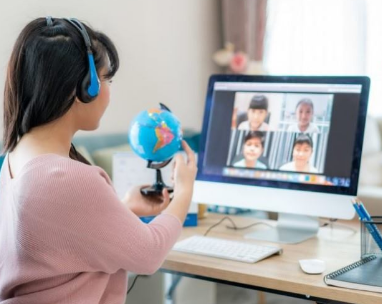Maintaining a positive relationship with yourself is one of the most meaningful investments you can make. Life often encourages us to focus on external achievements, social expectations, or the opinions of others, leaving little room to nurture the connection we have with our own hearts and minds. Yet, the way we treat ourselves shapes not only our inner world but also the quality of our interactions with others. Staying positive in your relationship with yourself requires conscious effort, gentle self-awareness, and a willingness to cultivate habits that honor your emotional and mental well-being.
The first step in fostering a positive relationship with yourself is practicing self-compassion. Life inevitably presents challenges, mistakes, and setbacks. During these moments, it is easy to fall into self-criticism or doubt. A compassionate approach, however, encourages you to speak to yourself as you would to a cherished friend. When you make a mistake or feel overwhelmed, remind yourself that imperfection is part of being human. A simple internal phrase such as, “It’s okay, I am learning,” or “I am doing my best right now,” can significantly alter the emotional tone of your inner dialogue. Over time, these gentle reminders nurture patience, understanding, and positivity in the way you view yourself.
Another essential practice for maintaining a positive self-relationship is acknowledging and celebrating your achievements, no matter how small. Often, people overlook personal victories, focusing instead on areas they wish to improve. By consciously recognizing your efforts and accomplishments, you cultivate a sense of pride and encouragement within yourself. This could be as simple as appreciating that you completed a task you had been postponing, reached out to someone you care about, or managed a challenging day with composure. These acknowledgments act as daily affirmations of your capability and worth, reinforcing a positive and supportive inner environment.
Gratitude also plays a pivotal role in strengthening your relationship with yourself. Practicing gratitude involves noticing the positive aspects of your life and your personal qualities, even during moments of struggle. Setting aside a few minutes each day to reflect on what you appreciate about yourself—whether it’s your kindness, resilience, creativity, or humor—helps shift your mindset from criticism to appreciation. Keeping a gratitude journal can be particularly effective, as it provides a tangible record of the qualities and experiences that bring joy and fulfillment to your life. Over time, this practice transforms your inner narrative, making it easier to maintain positivity and self-respect.
Physical and emotional self-care are equally vital. When you care for your body through nourishing food, movement, and sufficient rest, you send a message to yourself that your well-being matters. Similarly, tending to your emotional needs by allowing yourself to process feelings, engage in creative expression, or spend time in environments that uplift you strengthens your connection to your inner self. Self-care is not indulgence; it is a declaration of value, a consistent reminder that your needs are important and worthy of attention. Incorporating small, intentional self-care rituals into daily life can reinforce positivity and deepen your self-relationship.
Mindfulness and self-awareness are powerful tools in staying positive with yourself. By observing your thoughts and emotions without judgment, you create space to understand yourself more deeply. Mindfulness helps you recognize negative patterns and self-critical thoughts as they arise, allowing you to respond with kindness rather than reacting impulsively or harshly. Simple mindfulness practices, such as focusing on your breath, noticing your surroundings, or reflecting on your feelings, can cultivate a more grounded, compassionate perspective. This awareness fosters patience and resilience, helping you maintain a positive outlook even during stressful or uncertain times.
Positive self-talk is another cornerstone of a healthy internal relationship. The language you use to describe yourself shapes your mindset and emotions. Shifting from critical or limiting language to encouraging and affirming words can have a profound effect. Instead of saying, “I can’t do this,” try reframing it to, “I will give it my best effort,” or “I am learning and growing through this experience.” Over time, this practice nurtures confidence, optimism, and self-belief, reinforcing a sense of positivity in your inner dialogue.
Connecting with your passions and values also enhances positivity in your self-relationship. When you engage in activities that align with your interests and principles, you honor your authentic self. This connection provides a sense of purpose and fulfillment, reminding you that your life has meaning and that your contributions matter. Whether it is through creative pursuits, volunteering, learning, or spending time in nature, dedicating energy to what resonates with you fosters joy and reinforces a positive, nurturing relationship with yourself.
Another key aspect of maintaining positivity is forgiveness—both toward yourself and your past decisions. Holding on to guilt, regret, or self-blame can create unnecessary emotional burdens. By practicing forgiveness, you release these negative weights and open the door to self-acceptance. Understanding that mistakes are opportunities for growth rather than signs of failure allows you to embrace your journey with compassion and optimism. Forgiveness paves the way for a lighter, more supportive, and positive relationship with your inner self.
It is also valuable to recognize the company you keep, even within your own thoughts. Surrounding yourself with uplifting influences, including positive media, encouraging people, and affirming environments, supports your internal positivity. Similarly, intentionally curating your inner dialogue by challenging self-doubt and replacing it with constructive, kind perspectives reinforces the healthy relationship you are nurturing with yourself. By being selective in what you allow into your mental and emotional space, you create a foundation that encourages growth, resilience, and self-love.
Lastly, patience is essential in cultivating a positive self-relationship. Change does not happen overnight, and self-growth is a gradual process. Some days will feel more challenging than others, and that is perfectly normal. The key is consistency and persistence in practicing self-compassion, gratitude, mindfulness, and self-care. Each small, intentional step contributes to a stronger, more positive connection with yourself over time. Embracing this journey with patience and curiosity allows you to celebrate progress while remaining gentle with yourself during moments of difficulty.
In conclusion, staying positive in your relationship with yourself is a multifaceted journey that combines compassion, gratitude, mindfulness, self-care, and purposeful action. By treating yourself with kindness, recognizing your achievements, nurturing your passions, and practicing forgiveness, you create an environment in which positivity can thrive. This relationship forms the foundation for emotional resilience, inner peace, and a fulfilling life. Investing in your self-relationship is not a one-time effort; it is an ongoing practice that pays lasting dividends in your happiness, confidence, and overall well-being. Through daily reflection, intentional habits, and a gentle mindset, you can cultivate a positive, loving connection with yourself that grows stronger with each passing day.






